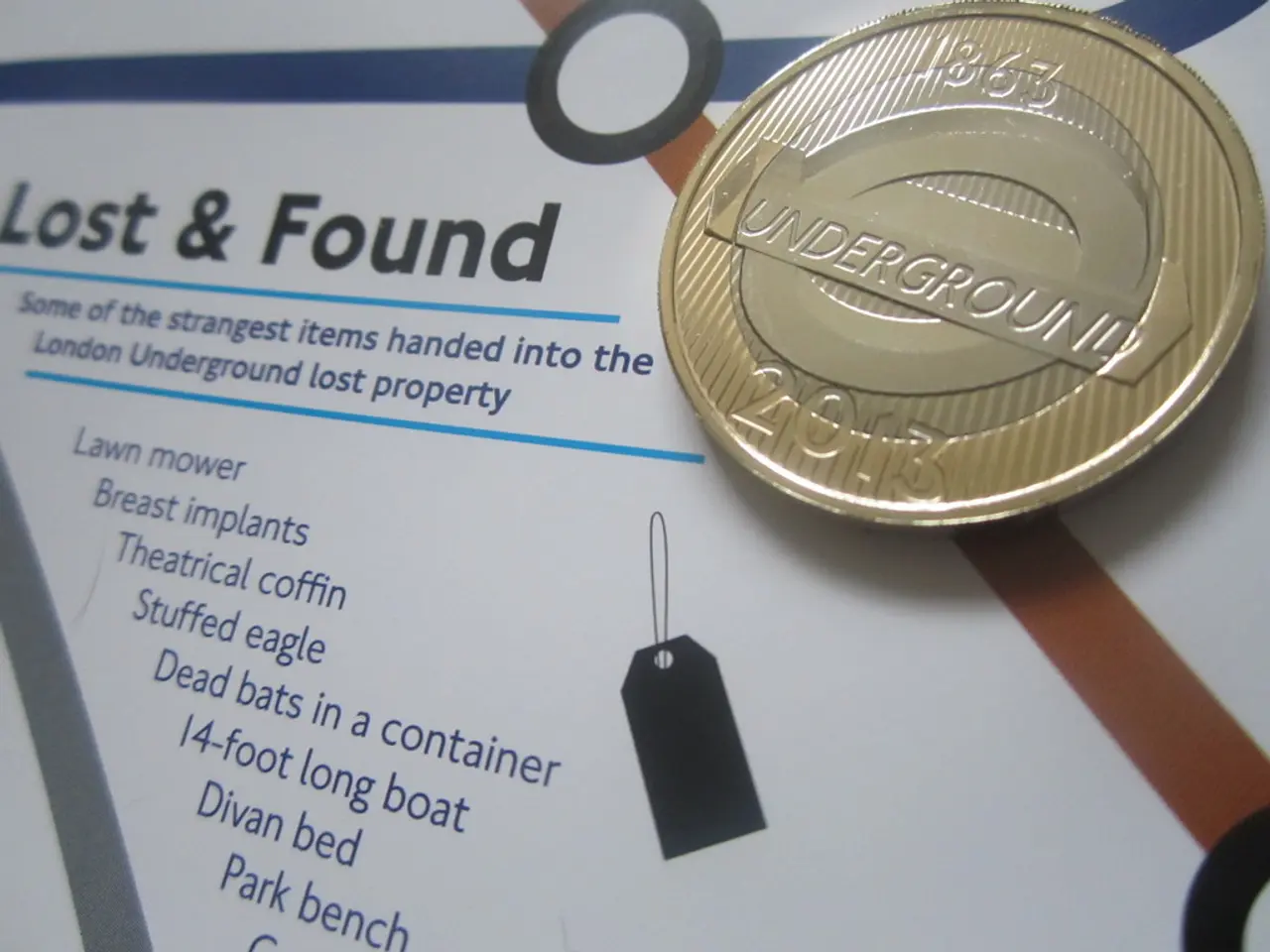Kazakhstan residents decrease their dollar spending
In the turbulent world of Kazakhstan's currency market in 2025, the tenge has faced significant depreciation pressures, hitting new lows against the US dollar. However, the National Bank's recent interventions have shown some promise in stabilizing the tenge's value.
The tenge's decline has been a result of various factors, including trade imbalances, falling oil revenues, rising domestic inflation, and speculative pressures. The tenge depreciated sharply against the US dollar, reaching new lows around KZT 550 per dollar in late July before slightly stabilizing near KZT 540 in early August.
Currency market volatility remains high, with trading volume on the Kazakhstan Stock Exchange's foreign currency spot market increasing 37.7% year-over-year. Despite the depreciation pressure, market activity remains strong.
The National Bank's intervention was aimed at addressing the factors causing the tenge's weakness. The Bank intervened with currency market operations, including $125.6 million in interventions at the end of July 2025. The dollar rate did not remain at the record high, falling after the National Bank's interventions, suggesting some success in the Bank's efforts to stabilize the tenge's value.
Regional data shows that the Almaty and East Kazakhstan regions sold more dollars than they bought in July. Almaty was the top seller, with sales of 201.2 billion tenge, followed by Shymkent with sales of 163.4 billion tenge. Nur-Sultan was the third-highest seller, with sales of 60.4 billion tenge. The Ulytau region had the least amount of USD bought, with sales of 1.4 billion tenge, while the Abai region had the second least amount of USD bought, with sales of 1.9 billion tenge.
The dollar rate's volatility in July was due to a combination of factors including low liquidity, speculative pressure, and global oil prices. The National Bank attributed the tenge's weakness to these factors, as well as low liquidity on the currency market and the impact of global oil prices.
Looking ahead, analysts have downgraded the tenge exchange rate forecast for the next year to around 573 KZT/USD from a previous 548.5. The consensus is that the tenge may stabilize below current levels (below KZT 530-540) but is unlikely to appreciate significantly soon given persistent economic and fiscal pressures.
In summary, Kazakhstan’s currency market in 2025 is shaped by weakening oil revenues, a narrowed trade surplus, elevated inflation, increased import demand, speculative trading pressures, and cautious central bank interventions, resulting in sustained depreciation pressures on the tenge and increased market volatility. However, the National Bank's recent interventions offer hope for a more stable currency market in the near future.
[1] Liter.kz, 2025. "Kazakhstan's Currency Market Faces Challenges in 2025." Accessed 15 August 2025. https://liter.kz/economy/2025/08/15/kazakhstans-currency-market-faces-challenges-in-2025/
[2] Ranking.kz, 2025. "Kazakhstan's Currency Market Analysis 2025." Accessed 15 August 2025. https://ranking.kz/economy/analysis/kazakhstans-currency-market-analysis-2025/
[3] National Bank of Kazakhstan, 2025. "Foreign Currency Spot Market Statistics 2025." Accessed 15 August 2025. https://nationalbank.kz/statistics/foreign-currency-spot-market-statistics-2025/
[4] Central Bank of Kazakhstan, 2025. "Monetary Policy Report 2025." Accessed 15 August 2025. https://cbank.kz/en/publications/monetary-policy-report-2025/
[5] Finance Ministry of Kazakhstan, 2025. "Economic Outlook 2025." Accessed 15 August 2025. https://finmin.kz/en/publications/economic-outlook-2025/
- The tenge's depreciation in the Kazakhstan currency market can be attributed to factors like trade imbalances, falling oil revenues, rising domestic inflation, and speculative pressures within the industry, affecting the finance sector and overall business health.
- To counterbalance these pressures, the National Bank has intervened with currency market operations, hoping to address the factors causing the tenge's weakness, aiming to stabilize the tenge's value, thus ensuring the continued operations of various businesses in Kazakhstan.




